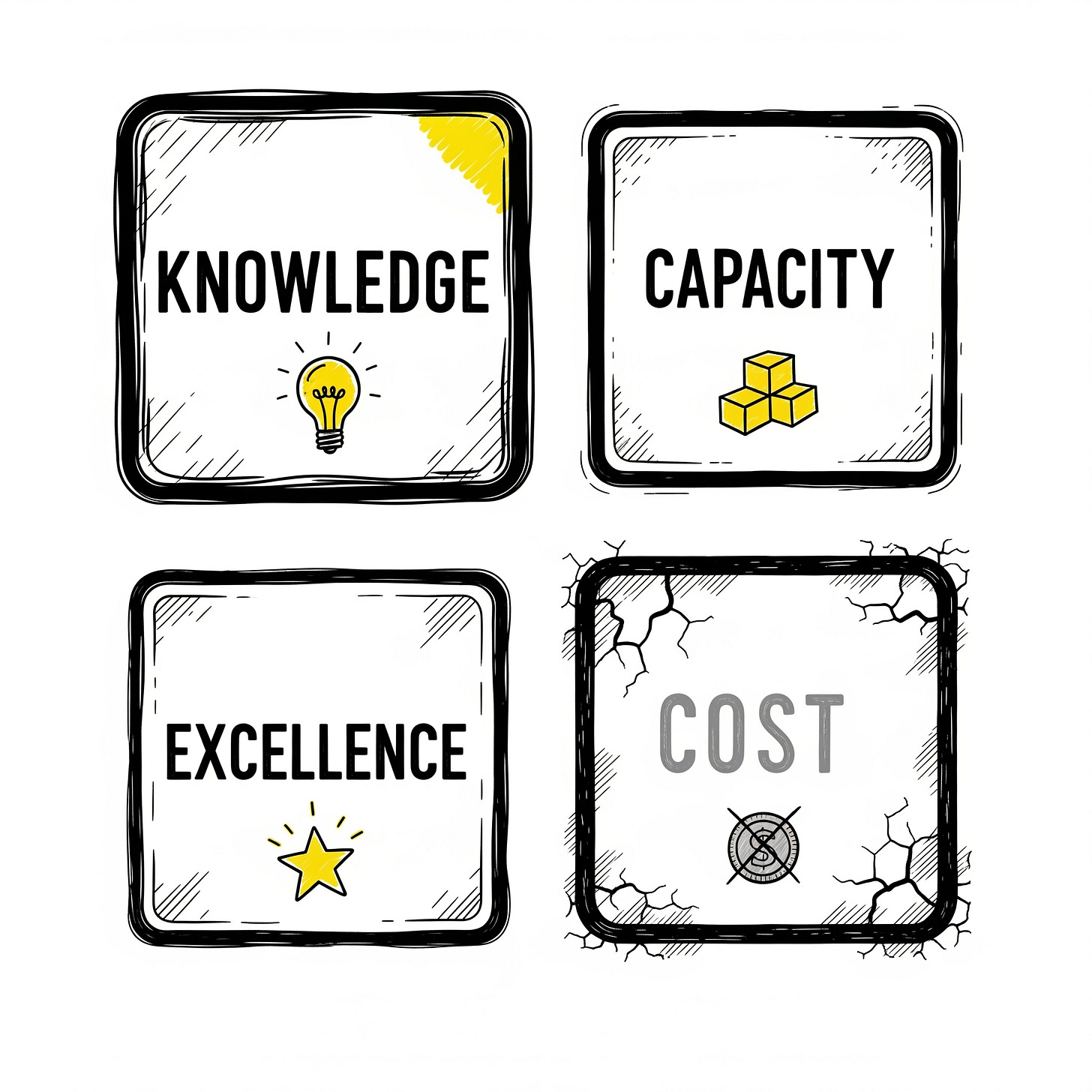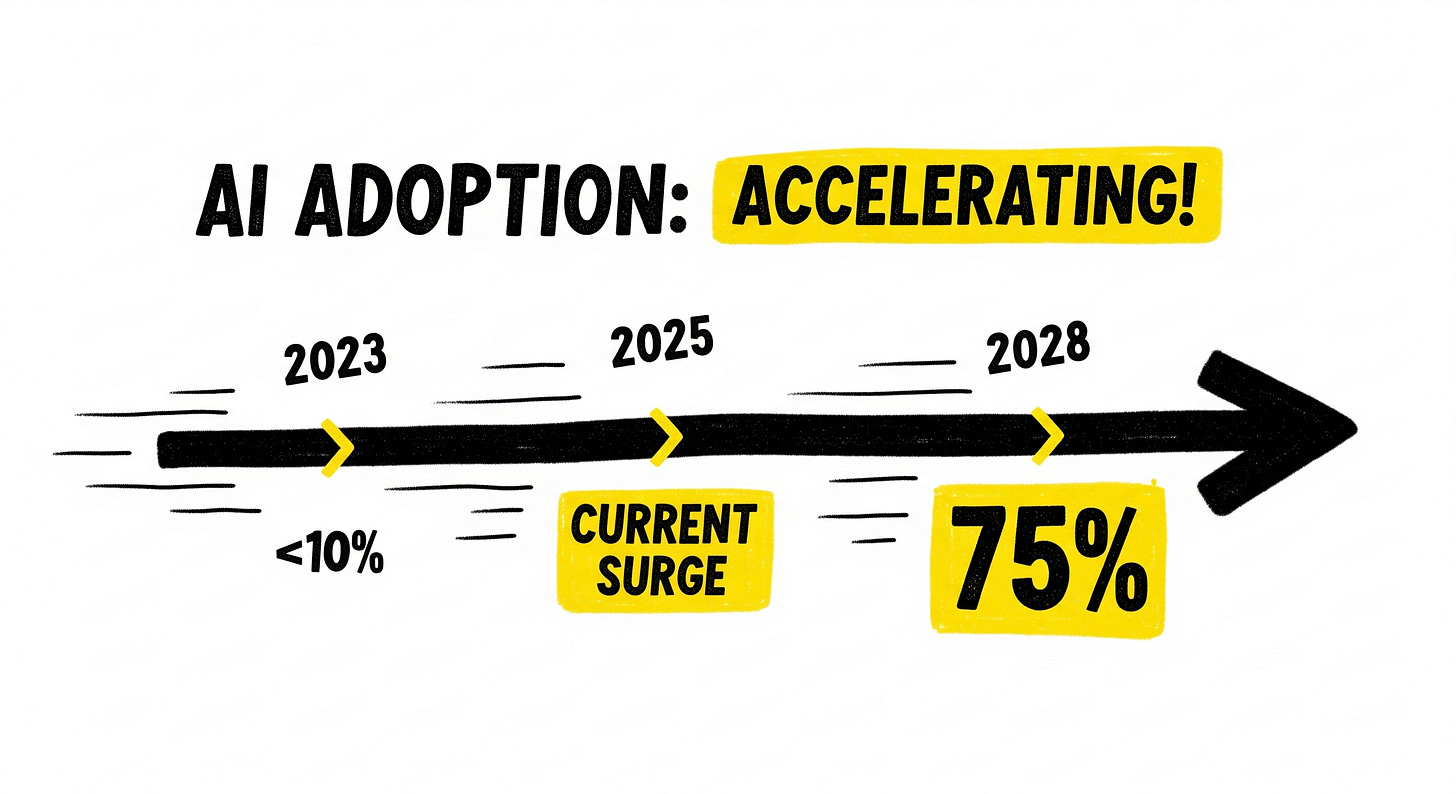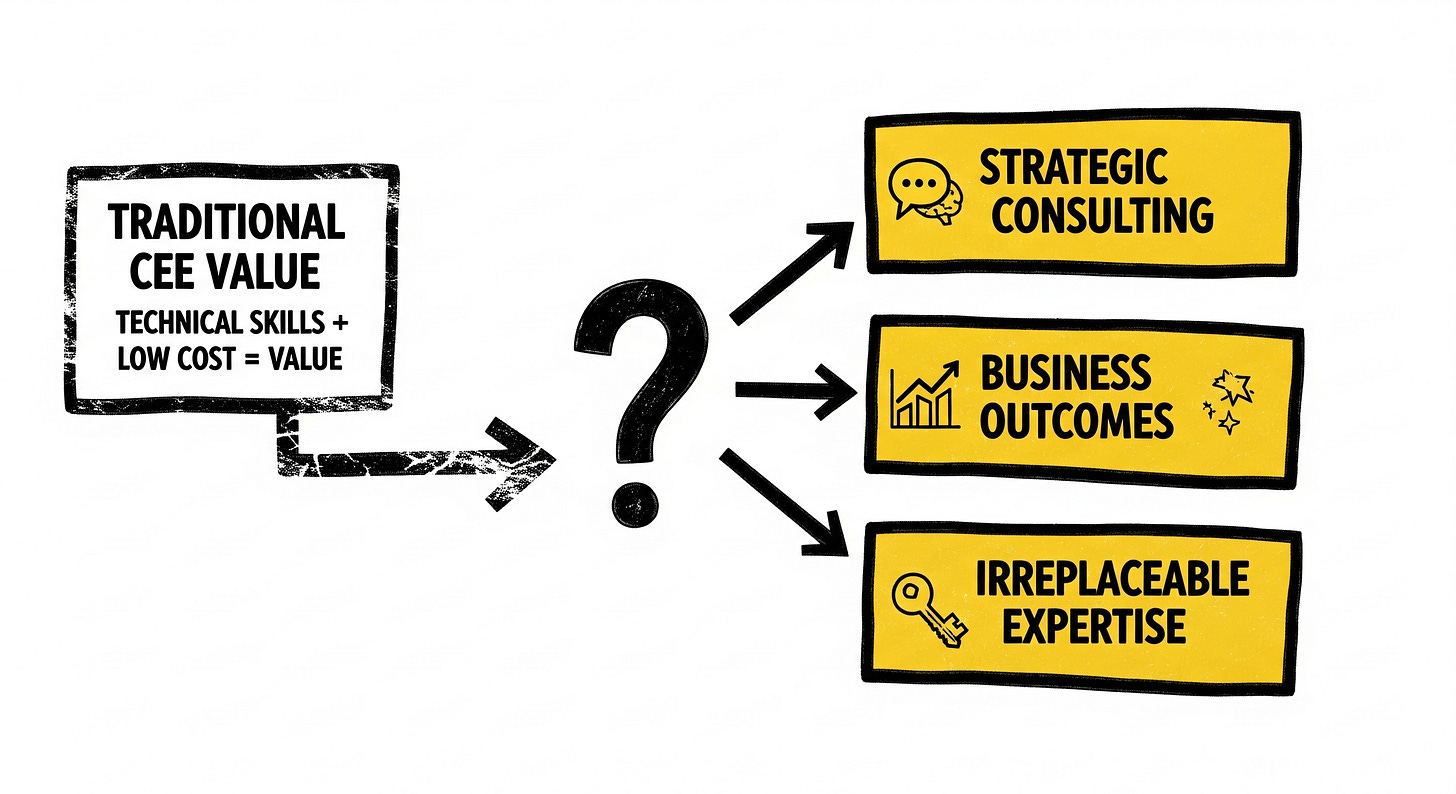The End of the Cost Game: Why CEE Software Agencies Must Find New Value in the AI Era
This is Part 1 of a 4-part series exploring how CEE software agencies can thrive as AI transforms our industry. Calin Muresan and I developed these insights through weeks of intensive collaboration in March-April 2025, determined to find real answers for CEE agencies facing AI disruption.
TL;DR: The cost advantage that built CEE's software industry is vanishing as AI commoditizes basic coding tasks. Agencies must urgently identify new sources of value beyond being cheaper than Western competitors.
For nearly two decades, Central and Eastern European software agencies thrived on a simple formula: excellent technical skills at competitive prices. This was our winning hand, the foundation that transformed cities like Warsaw, Bucharest, Prague, and Kraków into tech powerhouses. But today, we're watching that advantage dissolve faster than anyone thought it would.
Calin Muresan and I spent hours dissecting this shift during our recent workshops. During our sessions, Calin introduced a game metaphor that perfectly captures what's happening: software agencies can play different games - knowledge, capacity, operational excellence, or cost. In CEE, we mastered the cost game. We built our reputation on delivering quality work at rates that made Western clients take notice.
That game is ending.

The signs have been visible for years - wage inflation, remote work opening up everywhere, increased competition. But AI has turned gradual erosion into an avalanche. When GitHub Copilot helps developers complete complex tasks 12% faster, when AI generates functional code from natural language descriptions in seconds, when basic testing and documentation become automated - what happens to agencies whose primary value proposition was affordable human coding capacity?
Calin and I see it in every client conversation. Where they once asked "How much per developer?" they now ask "What outcomes can you deliver?" The shift is profound and accelerating.
Empirical data and industry reports are already demonstrating this impact: McKinsey research shows AI delivering 10-30% productivity gains across development tasks - meaning work that once required a full development team might soon need just two-thirds of the resources. Gartner predicts that by 2028, 75% of enterprise software engineers will use AI coding assistants, up from less than 10% in early 2023. These aren't distant possibilities - they're happening now.

A friend who runs an agency in Poland shared their wake-up call with me. A major client started using AI tools internally and cut their development team needs by 60% in just three months. The client didn't need cheaper developers anymore. They needed fewer developers. Period.
But here's the twist: that same agency saved the relationship by pivoting to strategic consulting. They stopped selling developer hours and started selling strategic insight. Helping clients decide what to build, not just how to build it. Today, they charge 40% more per hour even though they bill fewer hours overall. This isn't just one agency's story - it's a preview of our collective future.
Here's the hard truth every agency faces from Kraków to Bucharest: when AI can generate boilerplate code, automate routine testing, create documentation, and even assist with requirements gathering, being 20-30% cheaper than Western competitors isn't enough. When basic coding becomes a commodity, cost advantage evaporates.
This isn't about AI replacing all developers tomorrow. It's about the fundamental economics of our industry shifting beneath our feet. The tasks that junior developers spent years mastering - the bread and butter of many CEE agencies - are precisely what AI automates first. These routine implementations, standard CRUD operations, basic UI components, and straightforward testing scenarios represent significant portions of typical projects.
The implications hit hard across every aspect of our business model:
Time-based billing breaks when AI accomplishes in minutes what took days
Traditional pyramidal team structures - many juniors, fewer seniors - lose their logic when AI handles junior-level work
Geographic arbitrage vanishes when location becomes irrelevant to basic coding tasks

Yet I don't see this as catastrophe. I see it as a catalyst for the maturing of our industry in the region. The same disruption that threatens old models creates space for new ones. This shift restructures the entire value equation. When AI handles routine coding, agencies compete on insight, not implementation. They must find new ways to create and capture value that go beyond commoditized technical execution.
Agencies that recognize this shift early, that move quickly toward higher-value services, will find opportunities that didn't exist before.
The question Calin and I kept returning to: if not cost advantage, then what? Where does value migrate when the old game ends?
We built thriving tech ecosystems on the foundation of cost-competitive excellence. Now we must evolve beyond that foundation. The next game won't be about being cheaper. It'll be about being irreplaceable.
This means agencies that help clients navigate AI strategy, that understand complex business domains deeply enough to guide technology decisions, that can orchestrate human-AI teams effectively. The Polish agency's pivot to strategic consulting isn't an anomaly - it's a preview of where sustainable value lies in our industry's next chapter.
— Yarmo Covich & Calin Muresan
Share Your View: Is the 'cost game' truly over for your agency? What’s your biggest fear, or opportunity, in this new AI era?
In the coming articles of this series, we'll explore what this transformation means:
Article 2: Where value is migrating in the AI-augmented software industry
Article 3: The uniquely human capabilities that become your competitive edge
Article 4: A practical roadmap for transforming your agency to thrive in the AI era
Next: Beyond Code & Costs: Where Value is Shifting in the AI-Augmented Software Industry.



